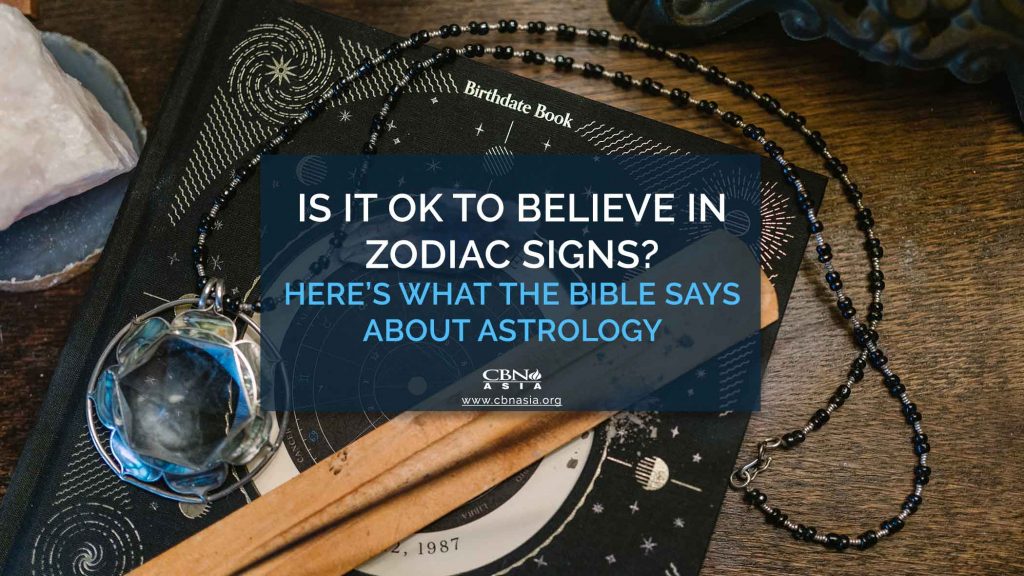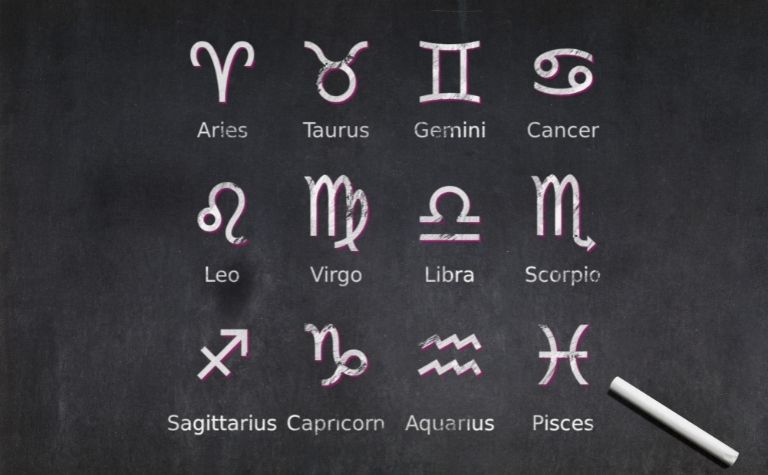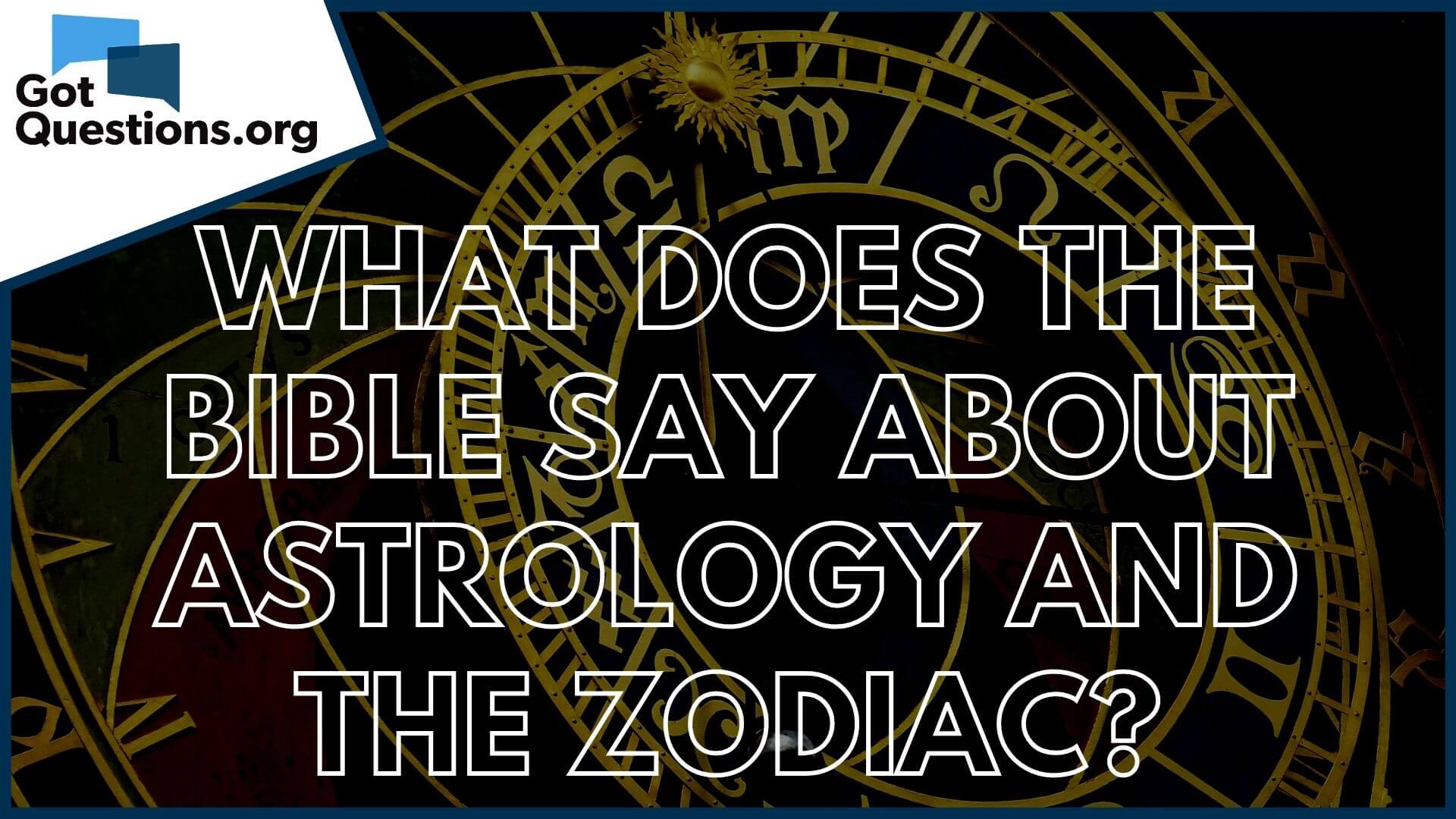Do Christians believe in zodiac signs? This question delves into the intersection of faith and astrology, exploring how Christian beliefs might align or conflict with the ancient practice of reading the stars. While some might see astrology as a harmless form of entertainment, others view it as a direct challenge to the sovereignty of God and the power of free will.
This exploration will navigate the complex relationship between Christianity and astrology, examining historical perspectives, biblical teachings, and the diverse viewpoints within the Christian community.
From the origins of the zodiac system in ancient Mesopotamia to its modern interpretations, we’ll delve into the fascinating world of astrology and its various applications. We’ll consider the theological arguments against believing in zodiac signs, highlighting the potential dangers of relying on astrology for guidance. Finally, we’ll explore how Christians reconcile their faith with personal beliefs about zodiac signs, showcasing the diverse approaches within the Christian community.
Christian Beliefs and Astrology: Do Christians Believe In Zodiac Signs

Christianity, a religion founded on the teachings of Jesus Christ, holds a distinct perspective on astrology, a system of divination that interprets celestial objects and their movements as having an influence on human affairs. This divergence stems from core tenets of Christianity, particularly the belief in God’s sovereignty and human free will, which stand in contrast to the deterministic nature of astrology.
Biblical Perspectives on Divination
The Bible, considered the sacred text of Christianity, addresses the practice of divination and fortune-telling in several passages, offering a clear stance against it. The Old Testament, particularly the Book of Deuteronomy, explicitly prohibits various forms of divination, including astrology:
“There shall not be found among you anyone who burns his son or his daughter as an offering, anyone who practices divination or tells fortunes or interprets omens, anyone who is a sorcerer or a charmer or a medium or a necromancer or one who inquires of the dead.” (Deuteronomy 18:10-11)
This passage highlights the importance of placing faith in God alone, not in celestial bodies or other forms of divination. The New Testament reinforces this stance, with passages like Galatians 5:20, which lists “sorcery” alongside other sins, emphasizing the incompatibility of Christian faith with practices like astrology.
Historical Perspectives on Christianity and Astrology
The relationship between Christianity and astrology has evolved over time, marked by periods of both conflict and coexistence. In the early centuries of Christianity, astrology was widely practiced throughout the Roman Empire, and some early Christian thinkers, like Augustine of Hippo, engaged with astrological concepts. However, as Christianity gained influence, it increasingly challenged the legitimacy of astrology, viewing it as a pagan practice that contradicted the Christian belief in God’s sovereignty and human free will.
- During the Middle Ages, the Church actively condemned astrology as a heretical practice, and it faced persecution from both religious and secular authorities.
- The Renaissance period witnessed a renewed interest in astrology, but it remained a contentious topic within Christian circles. While some scholars and intellectuals embraced astrology, others continued to criticize it as incompatible with Christian beliefs.
- In the modern era, the relationship between Christianity and astrology remains complex, with varying perspectives within the Christian community. Some Christians continue to reject astrology outright, while others may view it as a harmless form of entertainment or a tool for self-reflection.
The Nature of Zodiac Signs

The zodiac, a system of astrological signs based on the apparent position of the sun against the backdrop of constellations, has been a significant part of various cultures and civilizations for centuries. Its origins can be traced back to ancient Mesopotamia, where the Babylonians developed a system of twelve constellations along the ecliptic, the path the sun appears to follow throughout the year.
This system was later adopted by the Greeks and Romans, who further refined and popularized it.
Origins and Development
The origins of the zodiac can be traced back to ancient Mesopotamia, specifically to the Babylonians, who were renowned for their astronomical observations. Around the 7th century BCE, they developed a system of twelve constellations along the ecliptic, the path the sun appears to follow throughout the year. These constellations, each spanning approximately 30 degrees of the ecliptic, were associated with specific periods of the year and were believed to influence the events and personalities of individuals born during those periods.
The Babylonian zodiac was later adopted by the Greeks, who integrated it into their own mythology and astrology. They named the constellations after their gods and heroes, and they developed a system of associating each constellation with specific traits and characteristics. The Roman Empire further popularized the zodiac, spreading it throughout Europe and beyond.
Principles and Concepts
Astrology, the practice of interpreting the influence of celestial bodies on human affairs, utilizes the zodiac as a framework for understanding individual personalities and life events. It rests on the belief that the position of the sun, moon, and planets at the time of a person’s birth influences their personality, relationships, and destiny.
Astrological Elements
The zodiac is divided into four elements: fire, earth, air, and water. Each element represents a distinct set of characteristics and energies:
- Fire signs (Aries, Leo, Sagittarius): Energetic, passionate, and enthusiastic
- Earth signs (Taurus, Virgo, Capricorn): Practical, grounded, and reliable
- Air signs (Gemini, Libra, Aquarius): Intellectual, communicative, and social
- Water signs (Cancer, Scorpio, Pisces): Emotional, intuitive, and empathetic
Astrological Houses
The zodiac is also divided into twelve houses, each representing a different area of life:
- First House: Self, personality, and appearance
- Second House: Possessions, finances, and values
- Third House: Communication, siblings, and short journeys
- Fourth House: Home, family, and emotional security
- Fifth House: Creativity, romance, and children
- Sixth House: Health, work, and daily routines
- Seventh House: Partnerships, marriage, and significant others
- Eighth House: Intimacy, shared resources, and transformation
- Ninth House: Philosophy, travel, and higher education
- Tenth House: Career, reputation, and public image
- Eleventh House: Friendships, hopes, and aspirations
- Twelfth House: Spirituality, hidden influences, and endings
Astrological Planets
Each planet in the solar system is associated with a specific set of energies and influences:
- Sun: Vitality, self-expression, and ego
- Moon: Emotions, intuition, and inner world
- Mercury: Communication, intellect, and learning
- Venus: Love, beauty, and harmony
- Mars: Action, energy, and assertiveness
- Jupiter: Expansion, luck, and abundance
- Saturn: Structure, discipline, and responsibility
- Uranus: Innovation, change, and freedom
- Neptune: Spirituality, dreams, and intuition
- Pluto: Transformation, power, and rebirth
Applications of Zodiac Signs, Do christians believe in zodiac signs
Zodiac signs are used in astrology for various purposes, including:
Personality Analysis
Astrologers analyze the position of the sun, moon, and planets at the time of a person’s birth to determine their astrological chart. This chart reveals the individual’s sun sign, moon sign, and rising sign, which are believed to influence their personality, strengths, weaknesses, and overall life path.
Relationship Compatibility
Astrology is also used to assess relationship compatibility between two individuals. Astrologers compare the astrological charts of two people to identify areas of compatibility and potential challenges in their relationship.
Forecasting
Astrology can be used to forecast future events and trends. Astrologers study the movement of planets and their aspects to other celestial bodies to identify potential opportunities and challenges in a person’s life.
Christian Perspectives on Zodiac Signs

From a Christian standpoint, the practice of astrology, including the reliance on zodiac signs, presents several theological concerns and potential dangers.
Theological Concerns Regarding Zodiac Signs
Christian theology emphasizes the sovereignty of God and His active involvement in the lives of individuals. The belief in zodiac signs, however, suggests that one’s life path and destiny are predetermined by celestial bodies, diminishing the role of God’s will and free will in shaping human experiences.
- God’s Sovereignty: The Bible affirms God’s absolute authority over all creation, including the stars and planets. The belief in zodiac signs contradicts this, suggesting that celestial bodies hold power over human lives, contradicting the notion of God’s ultimate control. For example, the book of Daniel states, “He changes times and seasons; He removes kings and sets up kings; He gives wisdom to the wise and knowledge to those who have understanding” (Daniel 2:21).
This verse emphasizes God’s sovereignty over time, history, and human leadership, contrasting with the deterministic nature of astrology.
- Free Will: Christianity teaches that humans are created in God’s image with the capacity for free will and moral agency. The concept of zodiac signs undermines this, suggesting that one’s choices and actions are predetermined by their astrological sign, limiting individual responsibility and moral accountability. The Bible emphasizes the importance of personal choice and responsibility, as seen in the verse, “For God did not give us a spirit of timidity, but a spirit of power, of love, and of self-discipline” (2 Timothy 1:7).
- Focus on the Spiritual: Christianity prioritizes a spiritual understanding of life, focusing on the relationship with God and the pursuit of righteousness. Astrology, on the other hand, centers on material and earthly influences, potentially diverting attention from the spiritual realm and the pursuit of a deeper connection with God.
Potential Dangers of Relying on Astrology
Relying on astrology for guidance and decision-making can lead to several dangers, contradicting Christian principles.
- False Hope and Dependency: Placing faith in zodiac signs can create a false sense of security and reliance on external factors rather than God’s guidance. This can hinder personal growth and reliance on God’s will. The Bible encourages a reliance on God’s guidance and strength, as stated in Psalm 46:1, “God is our refuge and strength, an ever-present help in trouble.”
- Fear and Anxiety: Astrology often involves predictions about future events, which can lead to fear and anxiety, particularly if the predictions are negative. This contradicts the Christian message of peace and trust in God’s sovereignty. The Bible encourages trust in God’s provision and protection, as stated in Philippians 4:6-7, “Do not be anxious about anything, but in every situation, by prayer and petition, with thanksgiving, present your requests to God.
And the peace of God, which transcends all understanding, will guard your hearts and your minds in Christ Jesus.”
- Spiritual Idolatry: Giving undue weight to astrological predictions and interpretations can be seen as a form of spiritual idolatry, placing something other than God at the center of one’s life. The Bible condemns idolatry, emphasizing the importance of worshipping and serving only God. The Ten Commandments state, “You shall have no other gods before me” (Exodus 20:3).
Alternative Perspectives on Fate and Destiny
While astrology suggests a predetermined fate, Christian theology offers a different perspective on destiny.
- God’s Plan: Christianity affirms that God has a plan for each individual, but this plan is not necessarily predetermined. God’s plan is based on His love and desire for His children to experience His grace and grow in relationship with Him. This allows for free will and personal responsibility within the context of God’s sovereign plan.
- Providential Guidance: God’s guidance and provision are often described as “providence,” a term that emphasizes His active involvement in the lives of His children. This guidance may not always be obvious or predictable, but it is always present and available to those who seek it.
Personal Beliefs and Interpretations
The relationship between Christian beliefs and the interpretation of zodiac signs is multifaceted and often involves personal convictions and interpretations. This section explores the diverse perspectives within Christianity on astrology, examining how different denominations view the subject and how individuals reconcile their faith with personal beliefs about zodiac signs.
Denominational Views on Astrology
The Christian community exhibits a range of perspectives on astrology. While some denominations view it as incompatible with their faith, others hold more nuanced opinions. The following table provides a summary of different denominational stances:
| Denomination | Stance on Astrology | Reasoning |
|---|---|---|
| Evangelical Christianity | Generally opposed | Often sees astrology as a form of divination or fortune-telling, which is considered incompatible with Christian faith. |
| Catholicism | Cautious | While acknowledging the potential for superstition, the Church encourages discernment and emphasizes reliance on God’s will. |
| Pentecostalism | Typically opposed | Often views astrology as a practice rooted in paganism and incompatible with the belief in the Holy Spirit’s guidance. |
| Orthodox Christianity | Varied | Some Orthodox Christians view astrology with caution, while others may embrace it as a tool for self-understanding. |
Interpretations of Biblical Teachings on Astrology
The Bible contains verses that can be interpreted as addressing astrology, leading to diverse viewpoints on the subject. The following table showcases various interpretations:
| Biblical Passage | Interpretation | Example |
|---|---|---|
| Deuteronomy 18:10-12 | Condemnation of divination | “Let no one be found among you who sacrifices their son or daughter in the fire, who practices divination or sorcery, interprets omens, engages in witchcraft, or casts spells, or who consults the dead.” |
| Isaiah 47:13-14 | Rejection of reliance on astrologers | “You are weary with your many counsels; let your astrologers come forward and save you, those who predict the stars, those who tell of the months, and declare what is coming. See, they are like stubble; fire consumes them; they cannot deliver themselves from the power of the flame.” |
| Galatians 4:3 | Emphasis on freedom from the law | “In the same way, when we were children, we were enslaved to the elementary principles of the world.” |
Reconciling Faith with Personal Beliefs
Christians who hold personal beliefs about zodiac signs often grapple with reconciling these beliefs with their faith. Various approaches are employed:
| Approach | Explanation | Example |
|---|---|---|
| Complete rejection | Individuals may view astrology as incompatible with their Christian faith and reject it entirely. | A Christian who believes that only God can determine one’s destiny may choose to disregard zodiac signs altogether. |
| Symbolic interpretation | Some Christians may interpret zodiac signs as symbolic representations of personality traits or archetypes, rather than deterministic forces. | A Christian may see their zodiac sign as a reflection of their natural inclinations, but ultimately believe that God has a unique plan for their life. |
| Balanced approach | Individuals may choose to engage with astrology with caution, recognizing its potential for entertainment or self-reflection while maintaining a strong faith in God’s sovereignty. | A Christian may find it interesting to read about their zodiac sign but ultimately prioritize their relationship with God and seek guidance from the Bible. |
The question of whether Christians believe in zodiac signs is a nuanced one, with no easy answers. While some Christians might find astrology to be incompatible with their faith, others might see it as a harmless form of entertainment or even a tool for self-reflection. Ultimately, the decision of whether or not to believe in zodiac signs is a personal one, shaped by individual beliefs and interpretations.
However, exploring this topic sheds light on the ongoing dialogue between faith and culture, reminding us of the importance of engaging with diverse perspectives and fostering understanding across different belief systems.
Essential FAQs
Is astrology mentioned in the Bible?
Yes, the Bible addresses divination and fortune-telling, which are often associated with astrology. However, the Bible generally condemns these practices as forms of idolatry and a rejection of God’s sovereignty.
Do all Christians believe the same thing about astrology?
No, there are diverse viewpoints within the Christian community regarding astrology. Some denominations might have stronger stances against it than others.
Can I still be a Christian if I believe in zodiac signs?
This is a personal decision. Some Christians might believe that faith and astrology are incompatible, while others might see them as separate realms. Ultimately, it’s about your individual understanding of your faith and your relationship with God.





